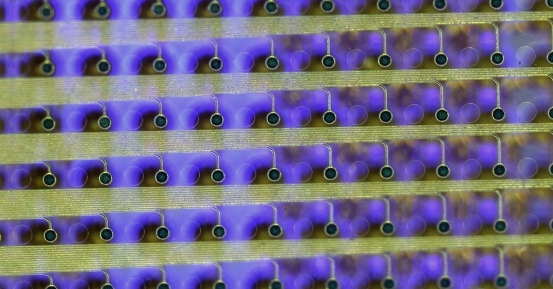
Noted Researcher and Scientific Leader Jack E. Dixon Retires
In a career spanning almost half-a-century, Dixon pioneered new discoveries and advanced science at both UC San Diego and the Howard Hughes Medical Institute
Published Date
By:
- Scott LaFee
Share This:
Article Content
Jack E. Dixon, PhD, whose distinguished and varied 48-year career ranged from helping reveal how cells communicate and fundamental processes of disease to becoming a renowned scientific leader, including terms as associate vice chancellor of scientific affairs at UC San Diego School of Medicine and as chief scientific officer at Howard Hughes Medical Institute, is retiring.

Jack Dixon, PhD, a renowned scientific leader at UC San Diego School of Medicine and Howard Hughes Medical Institute, is retiring after a distinguished 48-year career.
His last day in his current role — Distinguished Professor of Pharmacology, Cellular & Molecular Medicine and Chemistry & Biochemistry in the School of Medicine and Division of Biological Sciences — will be July 1, 2021.
“Jack is a scholar and visionary,” said David Brenner, MD, vice chancellor, UC San Diego Health Sciences. “In addition to his own groundbreaking research, he has provided invaluable mentorship to junior faculty and guidance for our research strategy. His brilliance will be missed.”
The scope of Dixon’s interests, investigations and influence cannot be overstated. Born in Nashville, Tenn., in 1943, Dixon received his undergraduate degree in zoology at UCLA, then earned his PhD in chemistry at UC Santa Barbara, with subsequent postdoctoral research at UC San Diego.
In 1972, he joined the faculty at Purdue University where he became the Wiley Professor of Biochemistry. In 1991, he was appointed chair of the Department of Biological Chemistry at University of Michigan, where he was also the Minor J. Coon Professor of Biological Chemistry.
In 2003, he returned to UC San Diego School of Medicine to serve as associate vice chancellor for scientific affairs and a professor in the Department of Pharmacology. In 2006, Dixon accepted the position of vice president and chief scientific officer at Howard Hughes Medical Institute, where he remained for seven years before returning to UC San Diego in 2013 and full-time work in his lab.
Dixon is an internationally recognized scientist in the field of reversible phosphorylation — a biochemical process that involves the addition of phosphate to an organic compound and, in the context of cells, serves as a fundamental master control switch by which proteins and their functions can be altered after they have formed. Phosphorylation plays critical roles in the regulation of many cellular processes, including cell cycle, growth, apoptosis and signal transduction pathways. It is the most common mechanism of regulating protein function and transmitting signals throughout the cell.
His research has had implications for understanding a number of important scientific questions, including the uncontrolled growth characteristic of cancer, the routing of nerve fibers and the success of disease-causing bacteria and viruses in overcoming the mammalian immune system.
In fact, Dixon was the first to discover that Yersinia pestis, the bacterium responsible for the plague or “black death” (which notoriously killed millions during the Middle Ages), harbors the most active protein tyrosine phosphatase yet described. PTPases are enzymes that play important roles in phosphorylation by removing unneeded phosphate groups. They help regulate cell growth, proliferation, differentiation and in the case of neurons, synaptic plasticity.
Dixon discovered that in Y. pestis, the enzyme functions as a lethal weapon when injected into mammalian cells, blocking the host immune response. The mechanism is now recognized as a widely used strategy for pathogenic bacteria to disarm host immune systems and thus a therapeutic target.
Dixon’s interest in phosphatases eventually led to analysis of the tumor suppressor protein PTEN, which shares sequence identity (the degree of similarity between two or more nucleotide sequences) with PTPases. He showed that PTEN dephosphorylates a key cellular phospholipid called PIP3. Loss of PTEN elevates PIP3 levels, promoting cell survival and tumorigenesis.
Most recently, Dixon’s lab has identified a new group of enzymes in the protein kinase family that phosphorylate casein in the biomineralization of teeth and bone.
Such a long and rich career in science (more than 300 peer-reviewed papers) has garnered numerous awards, including the William Rose and Merck awards from the American Society for Biochemistry and Molecular Biology, where Dixon also served as president.
Dixon has been elected to the National Academy of Science, the Institute of Medicine, the American Philosophical Society and as a Foreign Member of the Royal Society in the United Kingdom, the oldest scientific academy in continuous existence (founded 1660).
Listen to Jack Dixon talk about his career and the School of Medicine as part of the Oral Histories project celebrating the School of Medicine’s 50th anniversary in 2018.
Share This:
You May Also Like
Stay in the Know
Keep up with all the latest from UC San Diego. Subscribe to the newsletter today.


